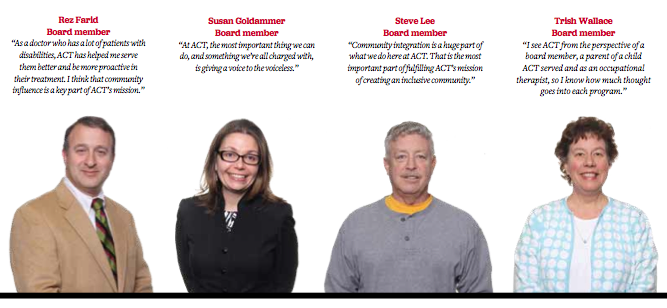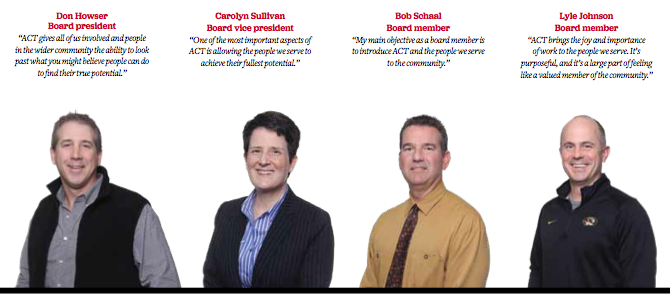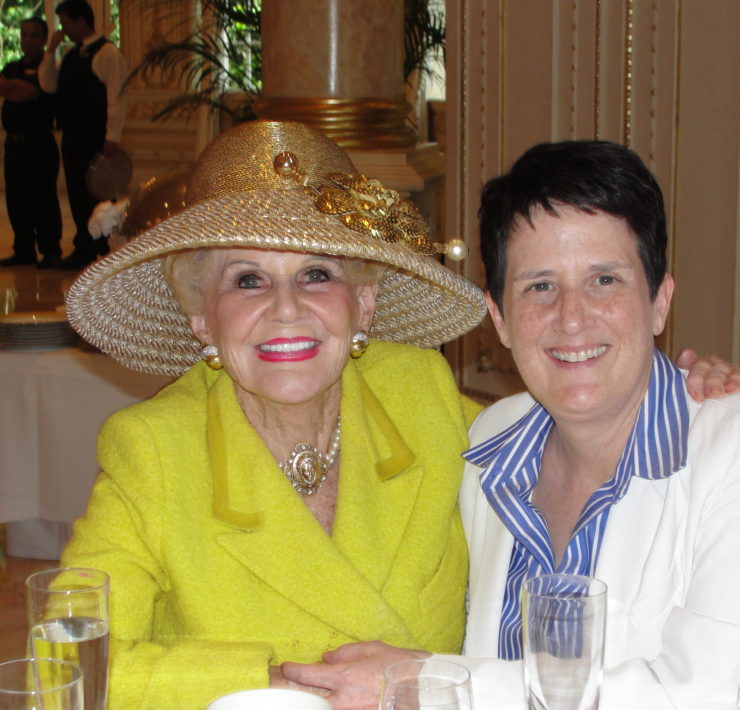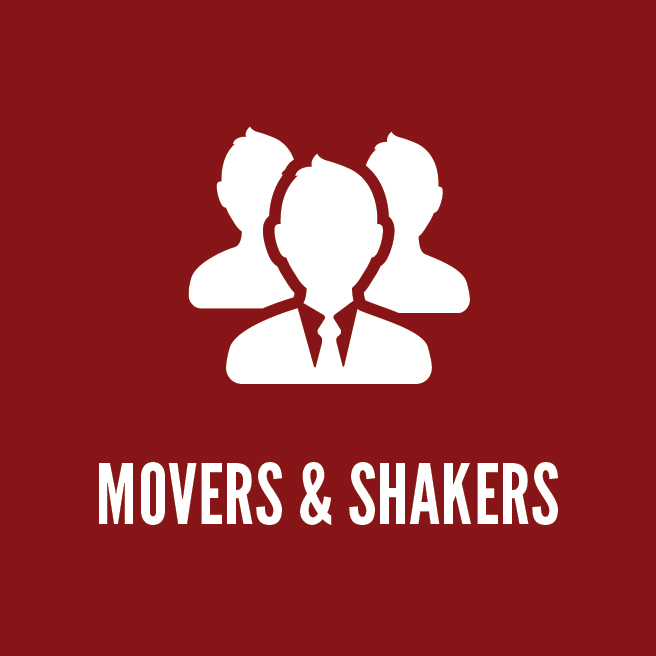ACT works to build a single community
Thirty years ago, Alternative Community Training didn’t even exist in its current form. It was a small private school called Woodhaven that focused on fulfilling the educational needs of students in Columbia with mental and developmental disabilities. In 1987, that all changed. Now, under a new name, ACT provides career services and training, in-home care and transitional programs for almost 500 people across a range of facilities, with more than 300 staff members and partnerships with businesses and other nonprofit organizations across mid-Missouri.
Person-centered approach
A large contributor to ACT’s success over the past two decades has been its person-centered approach to services. Executive Director Mark Hassemer says every service ACT provides came from an expression of need in the community.
“It didn’t start because I had a great idea, or the board had a great idea, or my colleagues had a great idea,” he says. “We worked to develop relationships with all of our stakeholders, and these programs developed out of their needs, not because they were contrived out of something we necessarily think is important but from what we heard was needed throughout the community.”
This person-centered approach begins from the moment clients walk into ACT’s facility. Their involvement in ACT’s variety in programming is dependent solely on individual goals and needs. Hassemer and his staff then work to find a program that will best suit each individual and what he or she hopes to accomplish by being part of the ACT community.
Currently, ACT supports six programs across its campus in Columbia and throughout mid-Missouri communities. These programs include ACT Career Services, ACT Works, behavior development services, community integration, community living and personal assistance.
ACT Career Services and ACT Works, two of the organization’s most successful programs, provide work opportunities for people who utilize ACT’s services. These opportunities may come from within Columbia businesses through the ACT Career Services program or in house at ACT’s facility through ACT Works. The latter of the two services involves a recycling program where workers, both with disabilities and without, disassemble VHS tapes and other outdated mediums and recycle the parts for sale to manufacturers for use in new products.
Into the community
Day services at ACT allow people with disabilities to go out into Columbia and other nearby communities and perform volunteer service. Hassemer says activities such as this go a long way in reinforcing self-worth and accomplishment, something everyone can experience and benefit from. “You’ll see people getting into vans and heading out to parts around Columbia and mid-Missouri,” Hassemer says. “They’re going to volunteer sights; we’ve been delivering Meals on Wheels for over 20 years. We’re finding ways for people with significant disabilities to get involved in their communities and partnering with a lot of other nonprofits to do that.”
Community integration allows ACT to fulfill its mission of creating a single inclusive community and finding ways for every member of that community to be involved in a positive and fulfilling manner. The organizing members of ACT believe that one of the organization’s strongest benefits is not to the people it serves but the education these types of integration programs give to people unfamiliar with ACT.
Hassemer is quick to note that just being in the community does not mean being part of the community and that the programs he and his team have developed work very hard to bridge that gap.
Looking ahead
While ACT looks ahead to expanding its programming and ability to serve the community, those involved are also realistic about their limits and needs. A large part of the board of directors’ work has centered on staffing. In a highly competitive job market, Hassemer says it is not as easy recruiting quality staff members as it once was. “People in this line of work aren’t in it for the money; they’re in it to help people,” he says. “Finding those people is our biggest challenge today.”
ACT is also seeking out more partnerships with businesses in Columbia to expand its career services program and a newer program, STEP, which helps high school students with developmental disabilities learn and develop important skills for entering the job market after graduation.
Since the beginning, ACT has relied heavily on City of Columbia governmental organizations as well as businesses throughout Columbia and central Missouri for support in creating programs and growing its services. When ACT first appeared in 1987, it served a little more than 50 people; now, coming in strong at almost 500 people served on a daily basis, ACT is an instrumental advocate for people with disabilities.
After almost 30 years as executive director, Hassemer says watching the organization grow has been “quite a ride,” and he is looking forward to what comes next.
To assist ACT through either monetary donations or through donation of time, visit actservices.org or 573-474-9446.









